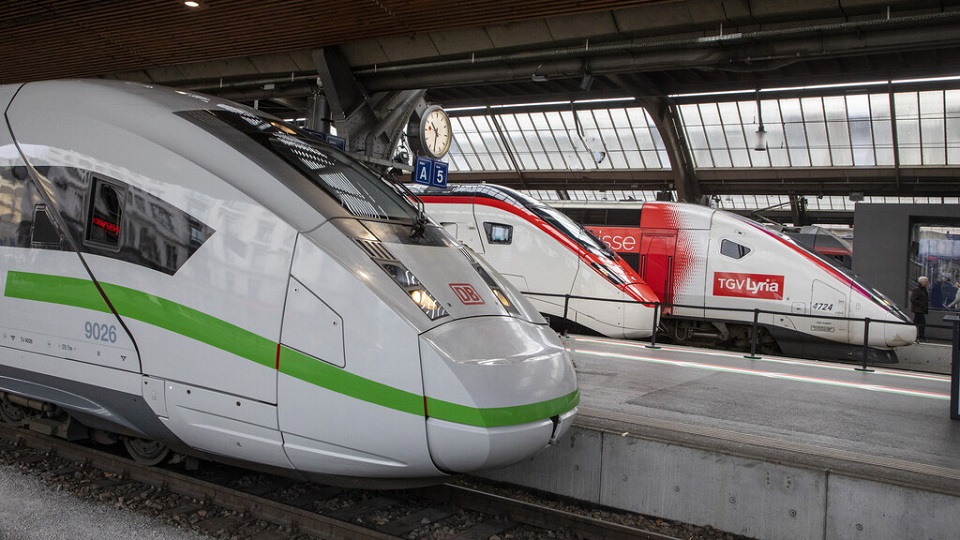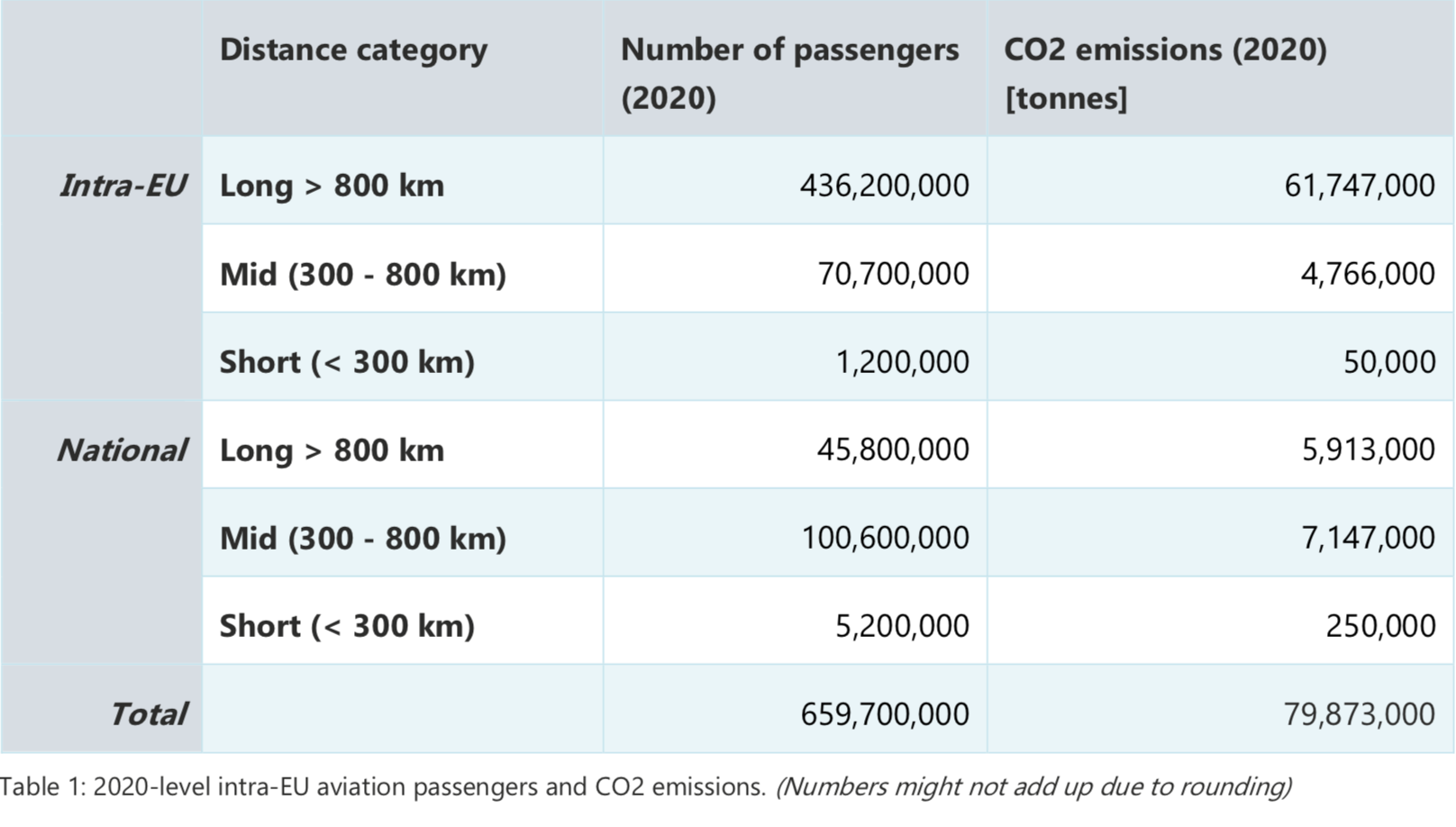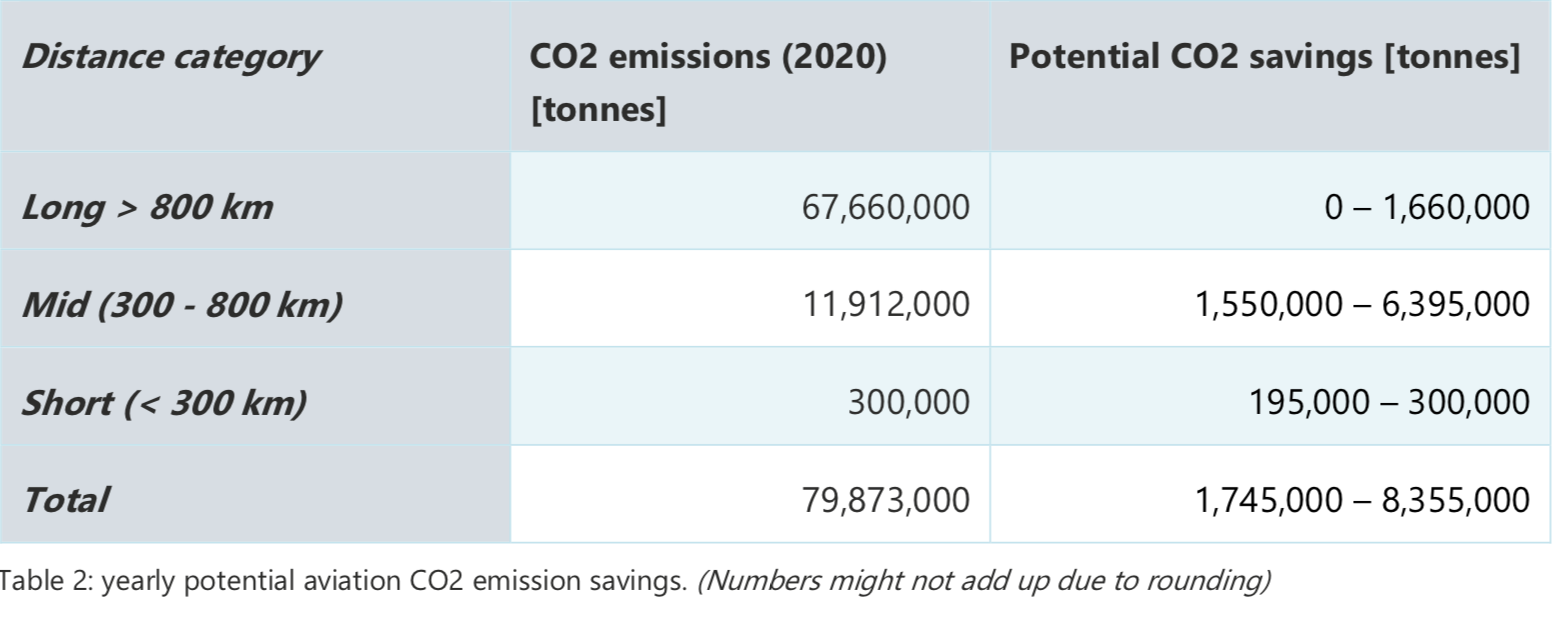European shift to train travels reduces CO2 emissions by 8.4 million tonnes

If travellers took the train en masse instead of taking the plane to travel from one European city to another, CO2 emissions would be up to 10 per cent lower. A saving is around 8.4 million tonnes. This is the conclusion of a study published on Friday, 28 February, by the Rebel Group on behalf of the Dutch infrastructure manager ProRail. In the top 10 routes with the greatest savings, the London – Amsterdam connection is at the top with more than 1.9 tonnes less CO2 emissions than the aircraft.
The Top 10 routes with the potential for greatest savings include the London-Paris connection (1.2 tonnes), Lisbon-Madrid (1.06 tonnes), Düsseldorf – London (0.6 tonnes), Stockholm – Copenhagen, Amsterdam – Paris, Frankfurt -London, Vienna – Frankfurt, Paris – Frankfurt and Amsterdam – Frankfurt. It is the first time that the CO2 reduction potential of the train has been calculated for the whole of Europe. Up to now, a country or global reduction has been looked at.
The researchers from the Rebel Group calculated the difference in emissions based on the number of flights and passengers in 2018. This included both domestic flights and international flights in the European member states. In 2018, around 630 million people travelled by plane within the EU, causing CO2 emissions of 76 million tonnes. 485 million people travelled by plane from one Member State to another and 145 million travellers boarded a domestic European flight. This only concerned France, Germany, Italy, Spain and the United Kingdom.
No rails at sea
The calculations take into account destinations that cannot be reached by train, such as the Canary Islands, Corsica, the Balearic Islands or Greece. For that reason, the train is no alternative for 43 per cent of CO2 emissions from air travel. Simply because there are no rails at sea. The majority of CO2 emissions are due to flight routes with a length of more than 800 kilometres. These flights cause emissions. of 67.6 million tonnes, almost 85 per cent of the total aircraft emissions in the EU. It is precisely on these routes that the train has the most difficulty competing with the aircraft. Especially because of the travel time which, with a few exceptions, is longer by train. The potential saving on these routes is therefore relatively small according to the Rebel Group, 1.6 million tonnes.

On medium flights between 300 and 800 kilometres, the potential CO2 saving is 6.3 million tonnes out of 11.9 million tonnes. According to the Rebel Group, almost all short flights of up to 300 kilometres can be replaced by a train and the current 0.3 million tonnes of emissions could, therefore, be saved completely. According to the researchers, the total CO2 emission reduction of around 8.4 million tonnes can only be achieved in the most favourable scenario if Europeans opt for the train in large numbers. For comparison: in the Netherlands alone, road traffic emitted 5.6 million tonnes of CO2 in 2018.

Ticketing
To realize these savings, the study does not require investments of hundreds of billions of euros in a European network of high-speed lines. The biggest gain could be achieved with the development of European travel information and ticket sales that meet the needs of international travellers much better.
ProRail expects the study to help put the train on the map as an alternative to the aircraft. Until now, the Green Deal in the European climate plan has paid little attention to international passenger transport by train. Last week the Minister of Nieuwenhuizen sent another position paper to the European Commission with a dozen suggestions. And a new strategic plan is also being developed from Brussels itself with more attention for the train as an alternative to the aircraft. Elisabeth Werner from DG Move already gave a hint of this at the International Railway Summit in Warsaw last week.
Read also:




